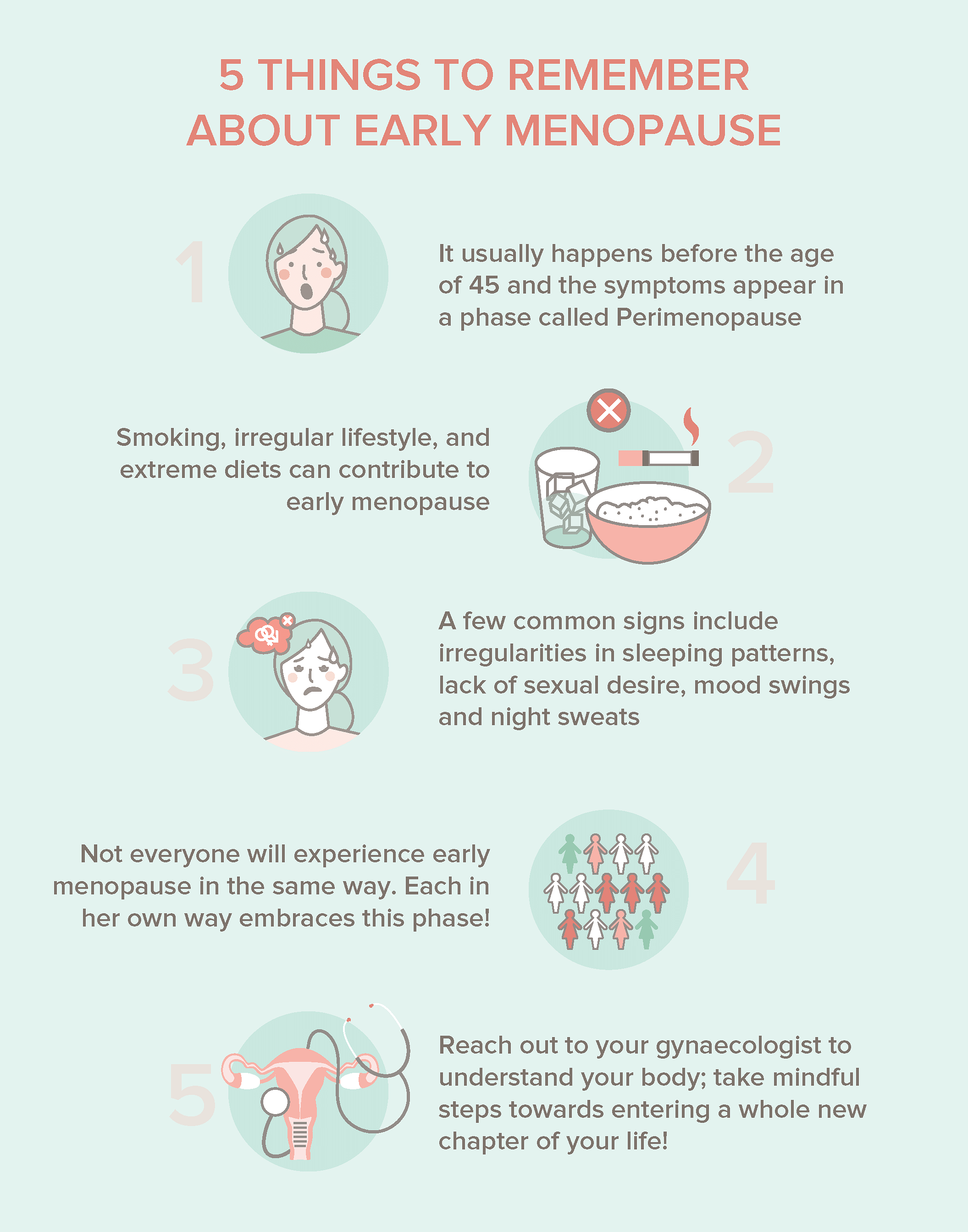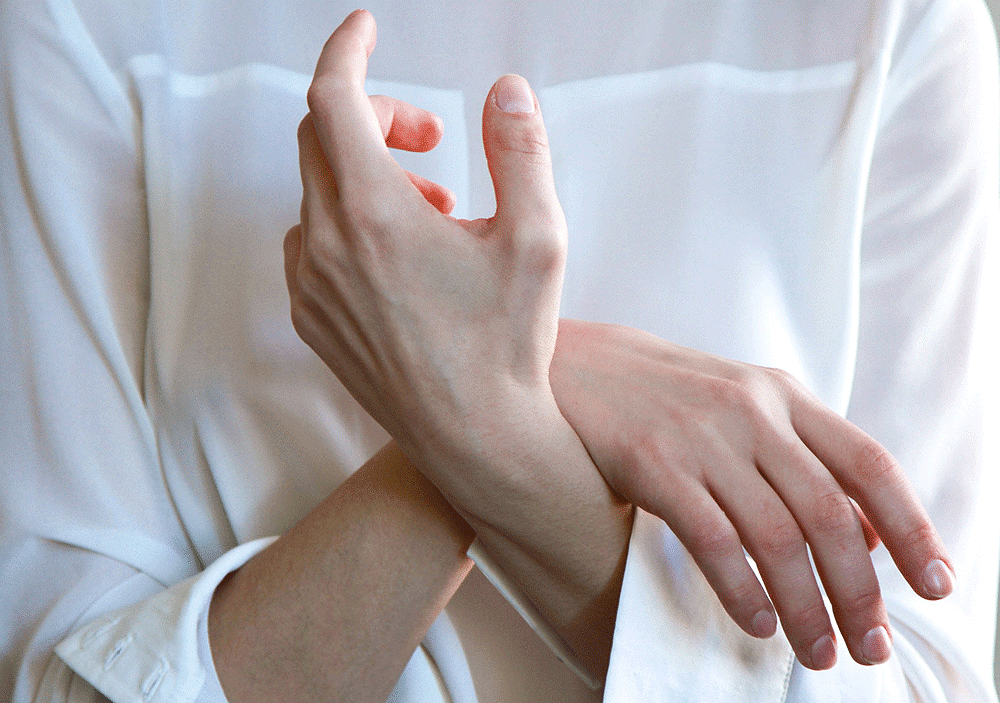Menopause is an important milestone in a woman’s life. It marks the end of her period and her reproductive years. However, it also has many impacts on a woman’s physical and emotional life. While some women accept this transition with a positive outlook, for many others it is a period of deep anxiety and change in mood. Early menopause therefore comes as a shock to most women as it is something that they are not expecting at that time.
Early menopause is considered before the age of 45 while premature menopause occurs before the age of 40. A woman is in menopause when she has not had her period for 12 months or more but associated symptoms can start months before – a period called perimenopause.
There are several reasons for early menopause, the most common of which include genetics, chromosomal effects, autoimmune disorders and lifestyle factors.
Out of these, the only one in our control is that of lifestyle. We live in extremely stressful times today. Stress has a huge impact on our physical health as well and is known to cause hormonal imbalances. Moreover, certain factors like smoking, consumption of excessive alcohol, being over or underweight, extreme diets and lack of exercise, all contribute towards an unhealthy lifestyle and have been seen to sometimes cause early menopause. It is therefore extremely important to be aware of how we are doing and take care of our health accordingly.
Symptoms of early menopause not only include irregularities in our periods but also mood swings, changes in sexual desire, vaginal dryness, sleep problems, hot flashes, night sweats and lack of bladder control. As a result, one may feel irritable, sad, demotivated, anxious, aggressive, have difficulty concentrating and experience fatigue. These changes are caused by hormonal imbalances but also are reactions to the physical symptoms that we are going through.
One can feel quite helpless, vulnerable and out of sorts during this situation as their body starts to react in ways which are outside one’s control.
The first step in order to cope with this is to be aware.
If you start experiencing any of the symptoms mentioned above, rather than ‘Googling’ and making yourself more anxious, please visit your gynaecologist. This way you will be able to do the required test and be able to actually know whether these are symptoms of perimenopause or otherwise.
Once you feel that your transitions have begun, keep a check on your symptoms and your moods. It is important for one to be aware so that they can recognize them accordingly. The first thing that we have to remind ourselves with is that this process is absolutely normal and a lot of its symptoms are temporary. The more we look at this step as a negative path, the harder, more anxious and more depressing the whole process becomes.
The next step is to be completely honest with ourselves and see which symptoms are becoming harder to cope with.
While for many women they start getting hot flashes, for some others it is the weight gain or the disturbed sleep that can upset us more. Once aware, try to speak to your doctors and other professionals who will be able to provide help by teaching you remedies and techniques on how to combat your symptoms. Secondly, always remember that although at this point you may feel that you are alone, several other women have gone through this process. There are lots of online blogs and forums that exist which may help you with the support that you are looking for in case you are not being able to receive it within your own social group.
What you are going through is real, out of our control, and a unique and vulnerable process, although normal, you do not have to do it alone!
In conclusion, it can be seen that early menopause can come as a shock to many women.
It is therefore extremely important to approach it with a sensitive outlook. Please reach out to your doctor who will help you understand your symptoms better. Accordingly, you can adjust your lifestyle and make the necessary changes. Lastly, you are not alone in this, many women before you and after you will be going through a similar process – so please reach out when you are feeling your emotions, as although you may not be able to rationalize them, they are real!

Our body goes through so many changes in its lifetime and each change plays an important role in making us the person we are. Its transition into early menopause marks the beginning of a journey that is limitless in possibilities. Find out more about perimenopause and menopause right here. You can also read up our Mental Health expert Ishita Pateria’s articles right here.







Helpful